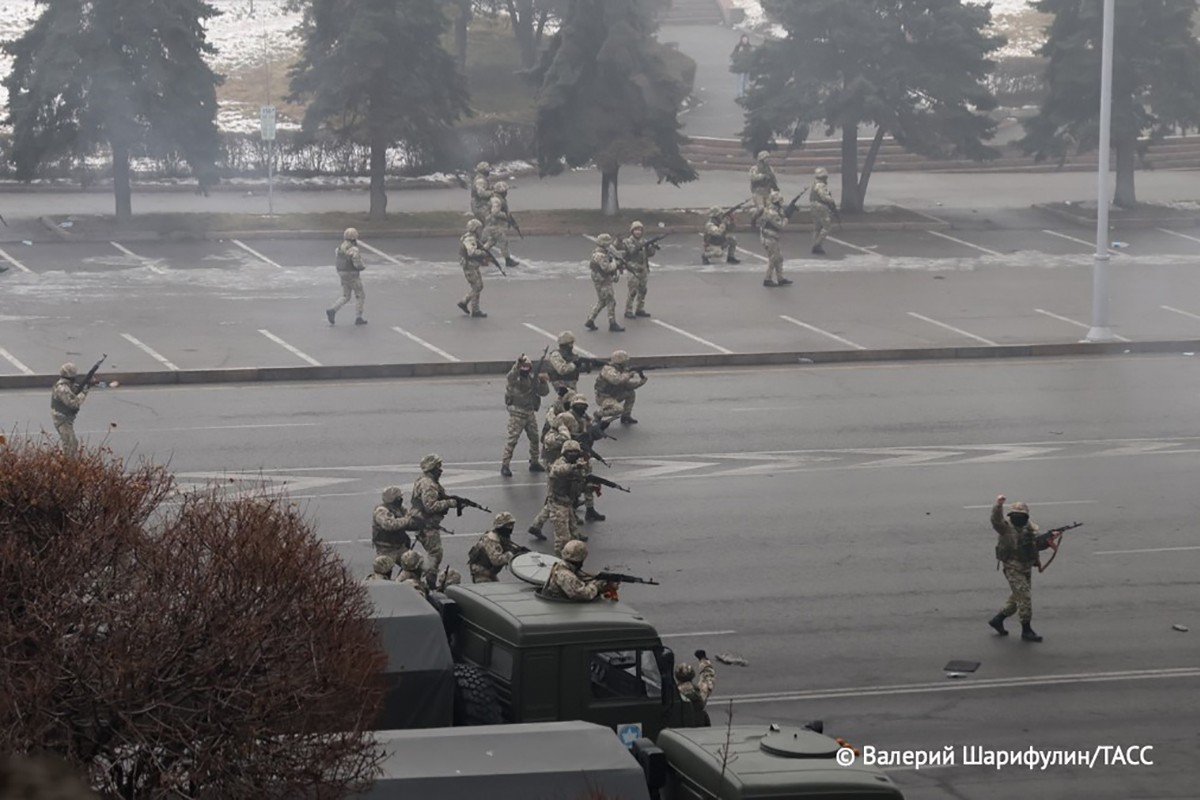
The Armenian Government, which came to power through anti-government street protests in 2018, has agreed to send troops to help quell anti-government protests in Kazakhstan as part of a joint ‘peacekeeping mission’.
On Wednesday night, Prime Minister Nikol Pashinyan announced that the Collective Security Treaty Organisation (CSTO) would send forces to Kazakhstan ‘for a limited time’ to ‘normalise and stabilise’ the situation.
Armenia has held the rotating chair of the Russian-led military bloc since September 2021.
In the announcement, Pashinyan claimed, without evidence, that the protests across Kazakhstan were the result of ‘external intervention’.
According to reports, dozens of protesters and 12 police officers have died in clashes between protesters and security forces in Kazakhstan, while hundreds have been wounded. The protests erupted on 4 January against an increase in gas prices, however, protesters’ demands quickly expanded to include political reforms.
The CSTO agreed to send military aid at the request of Kazakhstan’s authoritarian government following consultations between Armenia with the treaty’s other member states.
Kazakhstan’s request was made on the basis of Article 4 of the CSTO charter, which covers members’ obligation to mutual defence.
According to the security bloc’s official statement, peacekeeping troops from all member states are set to join the mission — Armenia, Belarus, Kyrgyzstan, Russia, and Tajikistan. According to Russian state-owned news outlet Sputnik Armenia, over 70 Armenian service members will take part.
Armenia’s Foreign Ministry also issued a statement, saying that it was following events in Kazakhstan ‘with concern’.
Criticism of Armenia’s involvement
Pashinyan’s statements as CSTO chair and his decision to send troops to Kazakhstan were not well-received in Armenia.
On social media, many were quick to point to the irony of Armenia’s involvement in a mission to quell anti-government protests, hearkening back to the revolution that thrust the country’s ruling party, Civil Contract, into power in 2018.
Others have argued that Armenia should not take part in the mission in response to the CSTO’s inaction following the May 2021 Armenian-Azerbaijani border clashes, or even Kazakhstan’s support to Azerbaijan in the Second Nagorno-Karabakh War.
Following the May clashes, Armenia addressed the bloc citing Article 2 of its treaty, calling for the coordination of positions and measures among its members states to eliminate ‘emerging threats’.
The organisation responded only that it was ‘closely following developments’ and ‘if necessary, actions will be taken’ under the bloc’s treaty and charter.








